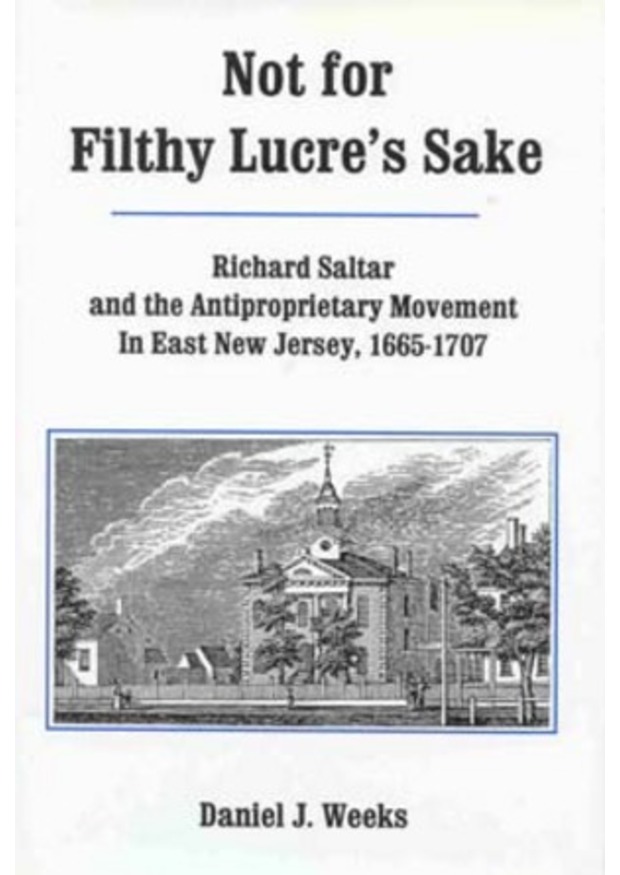Richard Saltar and the Antiproprietary Movement in East New Jersey, 1665-1707
The late seventeenth and early eighteenth centuries were tumultuous times for New Jersey. The settlers in East New Jersey rose in violent opposition to the proprietary government of the province. Antiproprietary agitators, including Richard Saltar, defied the authority of the province courts, often forcibly breaking up the proceedings and physically assaulting the judges. Daniel J. Weeks reveals that the antiproprietary movement was more than a spontaneous outburst against the perceived oppressions of the proprietors. It was in fact, a concerted and well-planned effort to overthrow proprietary power in New Jersey and establish a government based on the consent of the majority of the freeholders. The troubles had their roots in the very first days of settlement, after the proprietors, private owners of the land and government, refused to recognize the land patents of the settlers
By 1700 the agitation against the proprietors had reached full-scale rebellion throughout East New Jersey. The antiproprietary movement in Monmouth County, under the leadership of Richard Saltar and John Browne, Jr., was particularly strong. The freeholders of Monmouth denied the authority of the province court, beat up the high sheriff, and arrested the proprietary governor as he was holding court in Middletown.
The efforts of the antiproprietary faction in part prompted the Crown to impose a royal government on New Jersey. But the protest against the proprietary hold on the government continued unabated. Richard Saltar, an early landowner in Freehold, was instrumental in all aspects of the antiproprietary movement as it developed after 1700. He helped put together a coalition of London proprietors, royal officials, and resident freeholders that briefly managed to wrest control of the government from the resident proprietary interest.
Historians have generally accepted the view that Richard Saltar was a felon and a thug, who acted viscerally and without sufficient cause. But Weeks demonstrates that this characterization is based solely upon the testimony of Saltar's political enemies. A closer look reveals that Saltar, the great-great-great grandfather of Abraham Lincoln, was a cultivated man and a shrewd politician whose motivations were not without merit. In fact, Saltar and the antiproprietary faction sought nothing more than a broader franchise, fair elections, impartial courts, and public officials who were not beholden to an elite group of proprietors. This effort takes place against a backdrop of bribery, piracy, international war, and imperial intrigue, as Weeks traces Richard Saltar's rise from an apprentice linen weaver in Massachusetts to New Jersey attorney, assemblyman, and judge of the Monmouth County courts of quarter sessions and common pleas.













